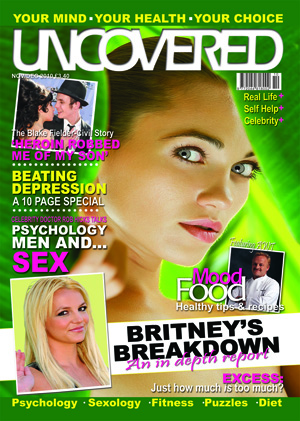Helping yourself
Depression can often leave a sufferer feeling helpless or in the hands of another, however there is much that we can do in our own lives to help combat depression. Here we look at some self-help strategies:

-
Talking
-
Groups
-
Be kind to yourself
-
Literature
-
Exercise and relaxation
- St John's Wort
Talking
Ways of helping yourself could include talking to your family and friends about your worries. Often, when we are depressed, we bottle things up, not wanting to ‘burden’ other people with our difficulties. We might put on a front to other people that everything is okay.
We will be able to keep this front up for so long but eventually, if the problems continue, this is likely to put more strain on us and add to our problems.
By talking to others, you might be able to see a way through your difficulties or get some help and support with them. If you cannot talk to your friends or family for any reason then it still might be useful to talk to someone who is not involved in your everyday life, such as a counsellor.
You could also join a self-help group for people with depression. If you are feeling suicidal, you may find it useful to talk to the Samaritans. Their telephone number is 08457 90 90 90 or they can be contacted by email at [email protected].
Groups
You may find that there are local self help groups in your area. You might like to contact the Depression Alliance to find if there are any self-help groups in your area. The website www.depressionalliance.org/how-we-can-help/self-help-groups.php gives details.
These groups provide a useful means of discussing your problems with other people. Sometimes knowing that you are not on your own and feeling understood by others can help you feel better about yourself.
Groups may contain people who have been feeling as bad as you but are now beginning to feel better. This can help you recognise that there is light at the end of the tunnel. These groups often have speakers and can provide further information to help you with your depression. You may also find support through your local church, temple, mosque or synagogue.
Be kind to yourself
Instinctively we tend to know how to help other people. We know, for example, that criticising them is likely to be unhelpful and probably make them less happy. We know that showing care and concern for them is likely to help them feel better about themselves. However, when we are depressed, we tend to criticise ourselves. We tell ourselves off for being down and say that we should ‘pull ourselves together’. One of the ways we can help ourselves when we are down is to show some care and concern for ourselves. Accept that we are where we are and that we are having a tough time.
Literature
There are various books and CDs that can help us with this process. Many libraries have a special self-help section and some NHS services operate a “Book Prescription Scheme” where you can borrow a self-help book from your library for free. Useful self-help books for depression include:
Overcoming Depression by Paul Gilbert (Available in Book & CD formats)
Mind Over Mood by D. Greenberger & C. Padesky
The Feeling Good Handbook by David Burns
Buy all recommended reads here:
Uncovered magazine Issue 1 has a depression special you may find useful.
Exercise, meditation and relaxation
Other ways of helping ourselves include activities such as exercise, meditation or relaxation. A particular type of meditation called ‘Mindfulness’ is recognised as being effective for helping people with depression. More information on the usefulness of mindfulness for depression can be obtained from the Oxford Mindfulness Centre – www.oxfordmindfulness.org/. The mindfulness practitioner, Jon Kabat-Zinn has published a series of useful books and CDs. Some of his materials are also available on YouTube.
There is also good evidence that exercise can help depression. Exercise releases Endorphins which can make you happier. It can also distract you from your depression. If you are uncertain about whether you should exercise for medical reasons, you should consult your GP. Ideally, you should aim for 50 minutes of exercise 3-5 times a week.
These exercise related stories may help you better understand the link with depression:
The importance of green exercise
The internal benefits of exercise
St John’s Wort
The extract from the flowering plant, St John’s Wort, is used extensively in Europe to treat mild to moderate depression. A study by the National Institutes of Health in the USA however suggests that it is no more effective than a placebo in treating major depression4. NICE advise that it may be effective for mild to moderate depression but caution its use due to their concern about how it might react with other medication. We would advise therefore that you seek further advice from your GP before using this product.
Further help
For more information on depression, please visit:







